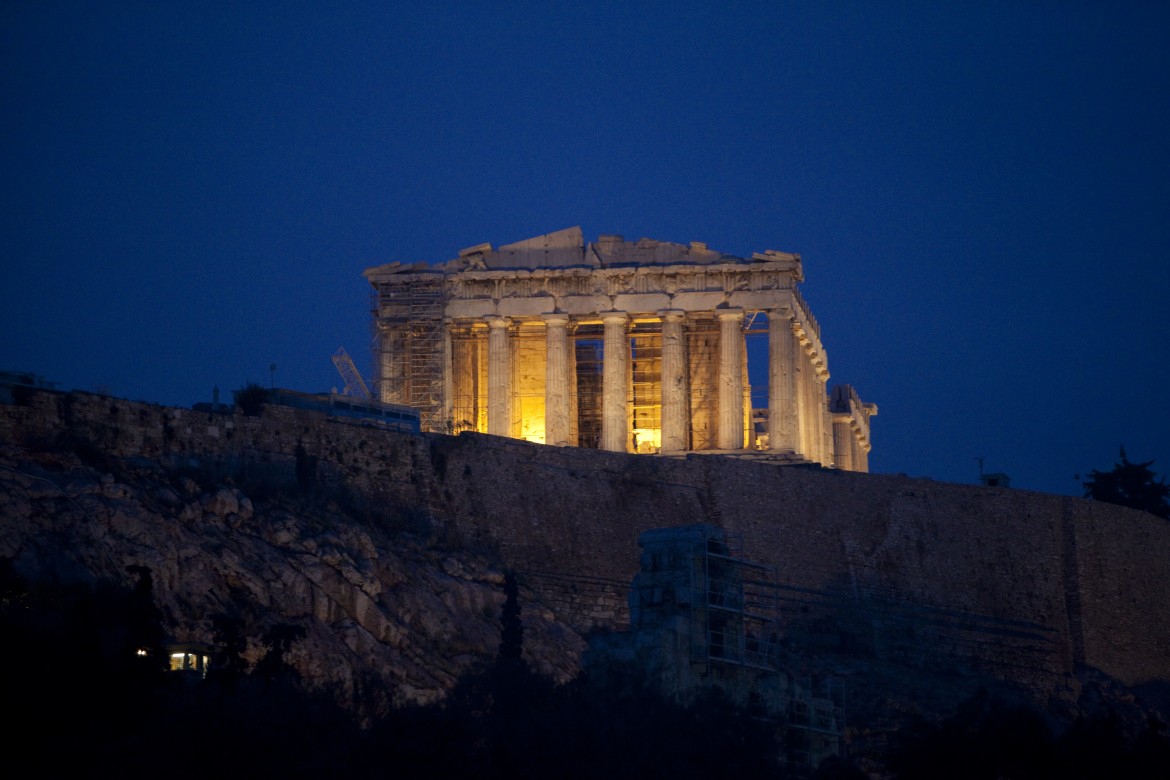Interview
Lydia Koniordou: Greek heritage is democracy’s heritage
The Greek Minister of Culture and Sports Lydia Koniordou explains why the government declined a Gucci fashion show at the Acropolis.

The famous theater actress and Greek Minister of Culture and Sports Lydia Koniordou is convinced that the rebirth of Greece begins with culture. In an interview with il manifesto, she strongly defended the decision not to grant Gucci access to the Acropolis for a show and demanded the return of the Elgin Marbles from the British Museum. She also recalled the universal power of the artwork of Jannis Kounellis, who died last week in Rome.
Minister, you are in Florence for a convention, and in your speech will refer to the Parthenon friezes. Is their return from the British Museum a priority for Greece?
The reunification of the Parthenon friezes certainly cannot stop. It is something that each new generation and each new government must continue to support strongly. Now it is no longer just a Greek request, since there are 25 committees around the world who are fighting for this just claim. We must not forget that this monument is the emblem of the founding values of democracy, dialogue, justice and freedom. Today, as we all make our voices heard about the challenges we face in this new century, the reunification of the Parthenon friezes acquires additional strength.
How has the long crisis that the country has gone through influenced the culture?
Before taking this position, I was part of the artistic community. We felt all the great difficulties that brought on the crisis and we faced very deep questions. The consequences were heavy especially for the young and talented. But, from these young people, there are also signs of hope. We believe there are many antibodies in society and that creativity is a profound necessity for everyone.
How will you support the sector as a whole?
My priority is to distribute equitably the public funds we have, something that in the past has not always been done. We try to further the heritage of the Ministry of Culture by promoting young talent and continuing unhindered the restoration of our monuments. We are convinced that our cultural heritage, education and high-quality tourism, together with our gourmet products, are sectors that can create many new jobs. It’s a priority, along with sustainable development.
The Archaeological Council refused to grant Gucci the Acropolis for a show. In Italy, many are saying the decision reflects great dignity. Do you belive so?
It’s not just national dignity. I fully agree with the decision taken by our archaeologists because [the Acropolis] is a symbol of democracy. We are obliged, therefore, to protect and maintain its symbolic value. We respect the company, but we had proposed other monuments as alternatives that the fashion house refused.
In Italy, there’s a famous phrase, “culture won’t feed you,” uttered by Giulio Tremonti, a former economy minister in the Berlusconi government. What do you make of his words?
I absolutely disagree. In this last 40 years around Greece, I’ve seen the great changes in communities that happen after the restoration of a monument or the renovation of a theater. Suffice it to mention the example of Epidaurus [a small town with an ancient theater]. It increased jobs, tourism and economic development. Besides the fact that young people feel that past and future are closely linked. In an era of tremendous upheavals, only culture can produce these results.
The death of the sculptor and painter Jannis Kounellis hit the world of culture hard. Is his creativity a testament that Greece still has much to say in contemporary art?
We are a small country, but very rich. And the universality of Kounellis’ work is a testament to that. He is an artist who has exhibited around the world. And the whole of his work, as he said himself, was heavily influenced by the legacy of Greco Roman culture. Jannis Kounellis has succeeded with its strong creativity to combine our two countries.
Is there a message you’d like to send to the European austerity hawks?
I would like to tell them that Greece, because of its culture, is strongly resisting. Undoubtedly there’s fatigue, but the creators of culture continue to struggle and we want to support these people. The closure of many historical libraries and publishing houses pains us deeply because it impoverishes our language and our existence. We’re asking that a single price for books [the law to protect small publishing, which is already in force in France and in Germany] be adopted, since we are convinced that it will help the sector. It is not just a matter of money, but also about guaranteeing that free creativity won’t be sacrificed to neoliberal policies. We must fight the strong economic interests that would like to impose a sharp level of ideas and aspirations.
The government is prioritizing equal justice for all, faithfulness to the public interest and a new phase in which Europe can tackle international challenges. The predominance of neoliberalism destroyed the welfare on which the European family was resting. We need to find a balance. It is a difficult and long challenge, and we know that because of past mistakes this will not be possible immediately. But I think the citizens in their wisdom understand that.
Originally published at https://ilmanifesto.it/il-partenone-e-il-simbolo-della-democrazia/ on 2017-02-19
